Todd Alward rolls into the Spectrum Health West Pavilion parking lot in a new-to-the-family 2007 Dodge Caravan, driven by his sister, with his mom as a front-seat passenger.
Strapped in the middle row is Todd, seated in “Jazzy,” a maroon electric wheelchair—a constant companion as ALS consumes his muscles and physical competency.
Not so long ago, Todd worked as a strong and capable delivery driver for a local home improvement supply company.
Now he’s the one being delivered.
His mom, June, and sister, Leisha, exit the silver van and unfold the manual handicap ramp on the starboard side of the vehicle. Todd rolls to the sidewalk, then inside to the check-in desk.
He and the receptionist chat about the beautiful sun-filled day. It will grow colder soon. Clouds will descend. Days will grow shorter. But no one talks about that. Not now. Probably best, not ever.
Despite a probable outcome after being diagnosed with ALS two years ago, Todd remains focused on the sun.
With a sense of hope in his deep blue eyes, Todd reminds the receptionist that there will be more bright days ahead. It’s a promise almost. A season of faith that lingers long beyond today.
Todd doesn’t debunk reality. He’s living a life story few would want to once-upon-a-time in. He moved into the lower level of his mom’s Grandville, Michigan, condo last year when his muscles grew too weak to function on his own. He sleeps, he dreams, in a brown recliner lift-chair.
Sometimes in those dreams, he is fully functioning, able to do the simple things in life that he used to—like walk on his own, put on his own pants and shoes, or lift his left arm.
But then he awakens, the mobility a mirage. Each day may be a new beginning, but it’s a difficult beginning.
Todd has to slowly stretch and exercise each muscle as he awakens, just to be able to move them. First his arms, raised as far as he can push them toward the heaven he so much believes in, then his ankles, his calves, his thighs.
A day at the doctor
This fall day, with a 2 p.m. primary care physician appointment scheduled with Robert Kobiela, MD, is no different.
Todd eats two small doughnuts and sips on a power drink at 10:30 a.m.
It takes time to get ready, so this afternoon doctor appointment is well-timed. Todd’s brother-in-law, Doug, comes over on his lunch hour to help Todd get into and out of the chair lift from the basement, into the van and on his way to Spectrum Health West.
Todd rolls into Dr. Kobiela’s exam room, guiding the motorized chair with a joystick between the middle and index finger on his right hand. His left arm and hand these days, muscles maimed by the disease, are just along for the ride.
His mom, June, and sister, Leisha, follow the man who has become the leading man in their family story.
June, whose husband recently died from complications of Alzheimer’s, is now the primary caregiver for her son. Todd moved in with her a year ago. Leisha is a constant companion. Todd’s brother, Ross, is too.
No one wanted the story to play out this way. Todd was an active sportsman, hunting, fishing and working for Lumbermen’s. But several years ago, he began to notice weakness in his muscles while driving his work truck. Like falling asleep muscle sensations. Cramps, he thought. Then worse. Finally, a diagnosis from Paul Twydell, DO, a neurologist with Spectrum Health Medical Group who specializes in neuromuscular medicine.
Throughout the trauma, Todd’s mantra remains: “Keep smiling.” It’s not just words. His positive outlook is real.
There’s even a slight smile on his face as the nurse takes his blood pressure. The room is silent except for the rhythmic tick of a small, square clock. 148/84. It’s a good number for Todd. His smile grows broader.
Dr. Kobiela, who was Todd’s grandmother’s doctor, and his mom’s doctor, enters the room.
“How do you feel like things are going?” Dr. Kobiela asks.
It’s not a pretty-painted world, this progression, not even for a medical professional.
“I see little changes,” Todd says. “Slowly. Little weaknesses here and there. I stand up with my walker and try to get a little stand-up time, maybe stand up to watch a guy or two at bat when I’m watching a ball game. Then I sit down.”
Todd tells Dr. Kobiela he’s experienced some irritation in his feeding tube, a just-in-case tube that was implanted shortly after Todd was diagnosed in July of 2013. Dr. Twydell thought it best to install it early while Todd was still strong enough to fight potential infections.
He is still eating OK, he tells Dr. Kobiela, “although it’s a little difficult because of my thumb and forefinger.”
Leisha jokes that when he’s having difficulty, they help by shoving food down him.
“It’s a team effort,” Dr. Kobiela says. “Everyone has to rally.”
June asks Dr. Kobiela about a pressure sore on Todd’s ankle. Leisha quickly drops to the floor to remove Todd’s shoe.
A swollen purple foot emerges from the sock.
“That’s part of the disease process,” Dr. Kobiela says.
Todd tells the doc that he’s having more trouble breathing and uses his inhaler more frequently.
But he proudly relays how he has figured out the exact right chair and arm height to be able to push himself up and stand. At least sometimes, on days when his muscles cooperate.
The eternal elephant in the room
The nurse gives Todd a flu shot before he leaves.
He is grateful, telling her he’s been thinking about getting one. Everyone in the room knows it’s a precaution, that he likely won’t die from the flu.
If only there could be a shot to fend off the real elephant in the room, the one that is stealing his strength and making mockery of his muscle tone.
Since the last time Health Beat visited with Todd in April, it’s clear his muscles are growing weaker. His arms look more like those of a puberty-age boy than those of an avid outdoorsman used to lifting heavy materials.
But the irony of it all is the more his muscles wither, the stronger his resolve becomes.
It’s as if the strongest and most frequently used muscle in his body–his smile–has clubbed down the tentacles of this far-reaching monster.
He flashes it frequently, and freely. Spectrum Health West Pavilion lab technician Jen Chapman is the recipient as she prepares to draw Todd’s blood after his doctor appointment.
“Are you having a good afternoon?” Chapman asks him.
Todd could easily decline: “No. My muscles don’t work. I’m weak. I can’t perform simple tasks on my own…”
Instead? “Oh, yes,” Todd says. “It’s been a great afternoon, especially the weather. It feels great to get out and about.”
This van, purchased thanks to a spring benefit in his honor, isn’t just about wheels for Todd. It’s about freedom, the ability to go places without needing someone to lift him in and out of a car.
Heading home
Blood test finished, Leisha pulls the van up to the pavilion entry door. June and Leisha unfold the manual ramp from the van and Todd powers his chair in, a contagious smile on his face at the simple joy of being able to do it alone.
And the simple joy of having a van to roll into.
When they arrive at June’s condo, Todd’s younger brother, Ross, is waiting for them. Ross is there to help Todd transfer from his mobility chair into the stair chair so he can return to his recliner in the basement.
Todd rolls up the ramp and into the condo. Ross grabs his brother in a bear hug and Todd attempts to stand up, but his legs wobble like Jello beneath his torso. Ross hefts his brother into the stair chair, then meets him at the bottom of the stairway to transfer him to a cushioned wheelchair.
This is home for Todd, a lower-level room with daylight windows, windows that give a glimpse of a pond, and an outdoor world in which he once thrived.
He still does on occasion—like tandem skydiving in July (his mom jumped, too), cheering for the Detroit Tigers during an August game at Comerica Park and a possible hunting-from-his-wheelchair excursion this fall.
At best, cameo appearances in a life in which he once starred.
He knows the likely final scene. Fighting tears, June does, too. But this somehow is not just the saga of a degenerative disease. It’s a story of strength, and a family bond chiseled in compassion.
Blood bonds
Todd and Ross were best friends growing up. They lived together as young adults.
“I’m just proud that he’s my brother and he’s been able to keep such a positive attitude,” Ross said. “I’m not so sure if I were in the same position if I’d be able to be as positive as he is.”
June holds a Bai5 antioxidant drink up to Todd’s lips. He takes a few sips.
She talks of the times Todd has fallen and could not get up. June and Leisha couldn’t lift him, so they called an ambulance for lift assist.
“He rolled over and looked at me and started laughing,” June recalled.
Todd has accepted losing his muscles. He won’t accept losing his sense of humor, his faith and his optimistic outlook.
“Some people can go so fast,” he said of others with the disease.
Doctors estimate Todd is in his seventh or eighth year with the disease, even though the official diagnosis came just two years ago.
Dr. Twydell said, as with many cases of ALS, Todd’s prognosis for survival beyond three to four years is poor.
But there are outliers, he noted, and some patients can live 10-20 years or longer.
Every three months, Todd attends Spectrum Health’s multidisciplinary ALS Clinic, where he sees a respiratory therapist, social worker, speech/language therapist, rehab specialist and neurologist.
Dr. Twydell said Todd’s positive attitude serves as an inspiration to many.
Dr. Kobiela agreed the attitude is amazing.
“Todd is doing as well as can be expected with a difficult disease,” he said. “He has an amazingly positive attitude despite his circumstance and I think this helps cope with the disease.”
Dr. Kobiela is impressed with how the family has pulled together during these difficult times. “Family support clearly is extremely important in dealing with this illness both physically and emotionally,” he added.
Todd is learning his strongest muscle remains intact—his heart.
“Life changes quite quickly on you,” Todd said. “But you find out your friends and family and loved ones are there to help. The scary part of all of a sudden not being able to move my body is a part I keep shoving out of my thoughts, but it keeps coming back.”
He pauses. A long pause. He holds up his finger for patience. The disease is stealing his breathing muscles, too.
“I’ve got to catch the air a minute,” he explains.
He eventually resumes speaking.
“It makes you appreciate the life you had, the life you have,” he said. “And to change from being able to do everything your whole life into doing things in a different way and just enjoying seeing life in a different way. It’s like you stop and restart. It’s a different chapter, a different journey.”
He brings up an analogy, that these days seems so far away—when he played ball for Grandville High School in the 1970s.
“It’s like when you get hit playing football,” he said. “Your clock is rung, the wind is knocked out of you, but you get back up and do it again.”
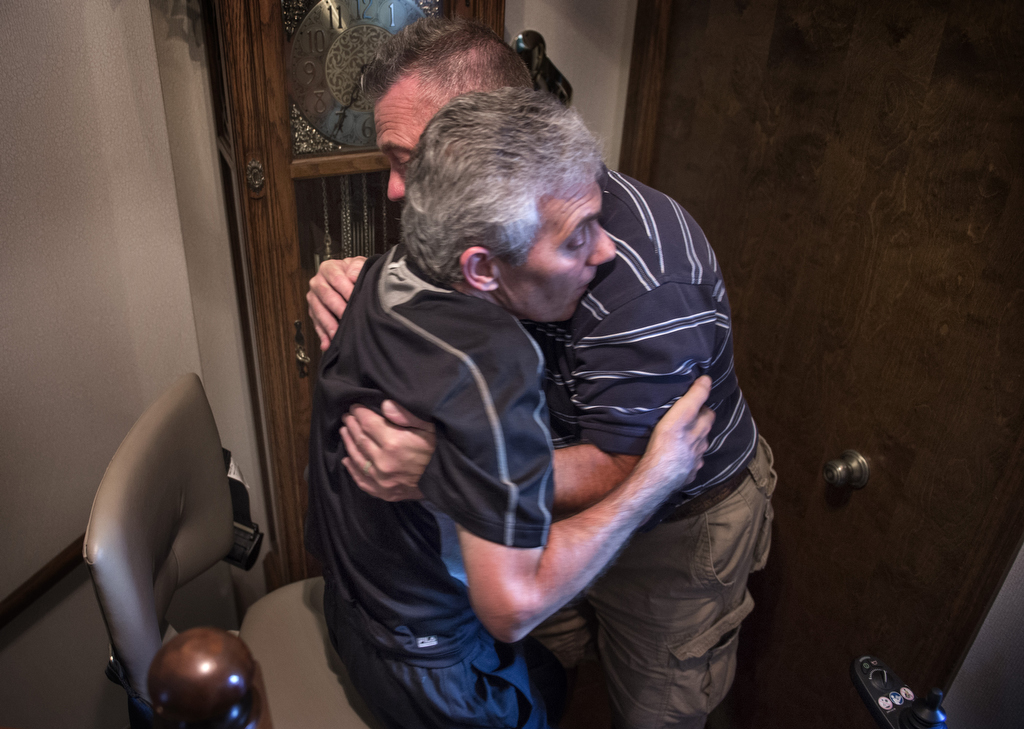
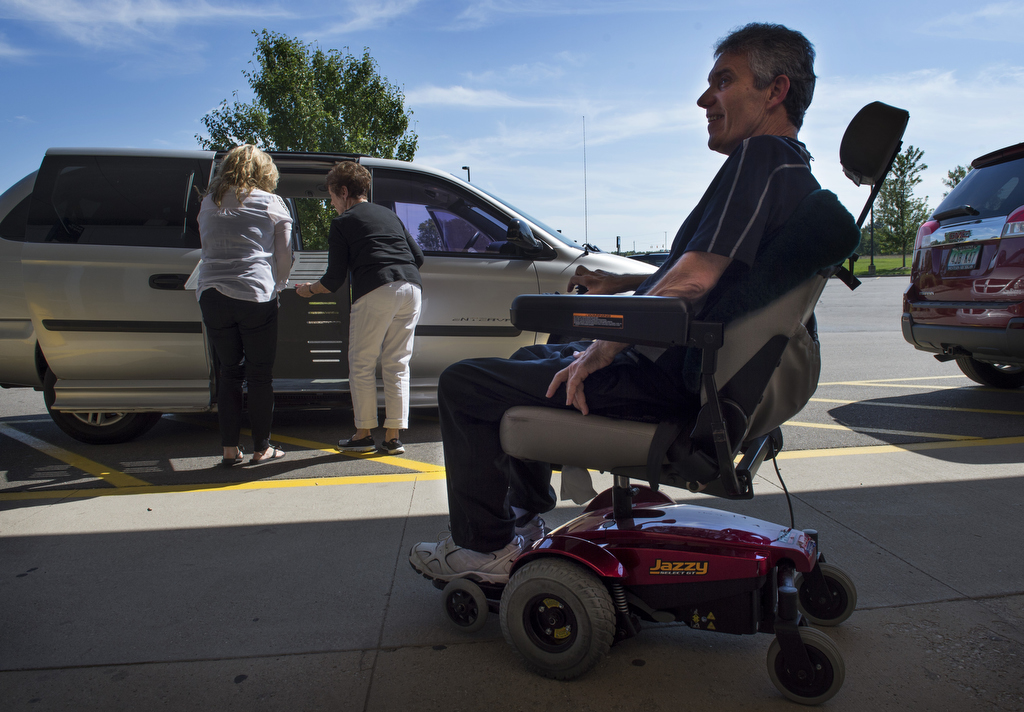
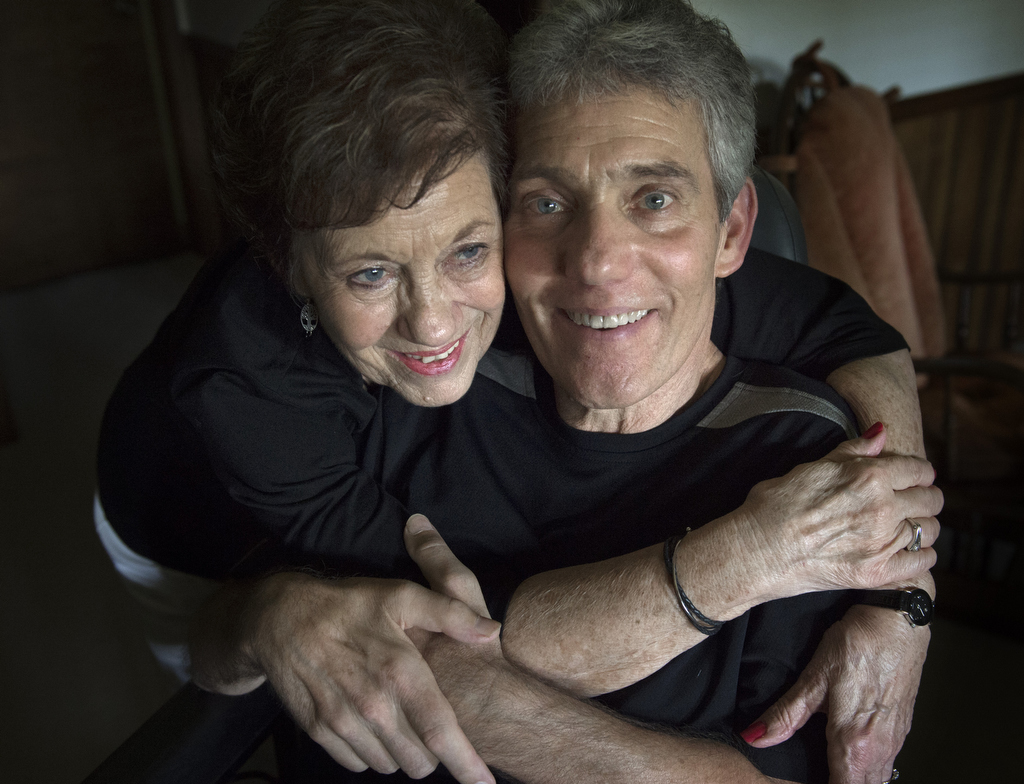
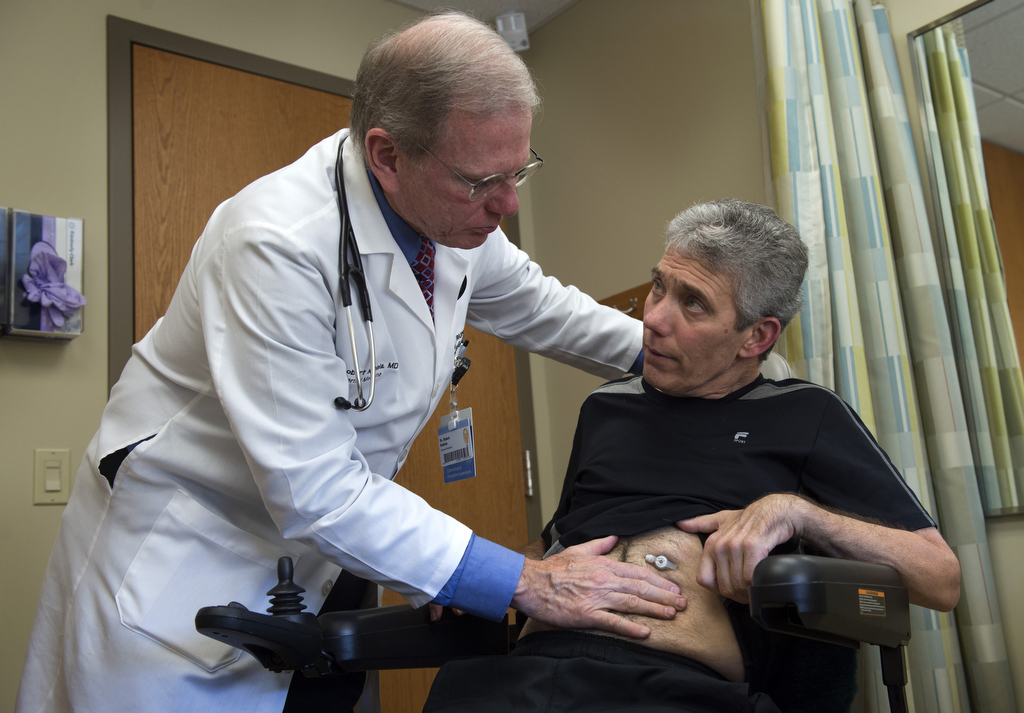
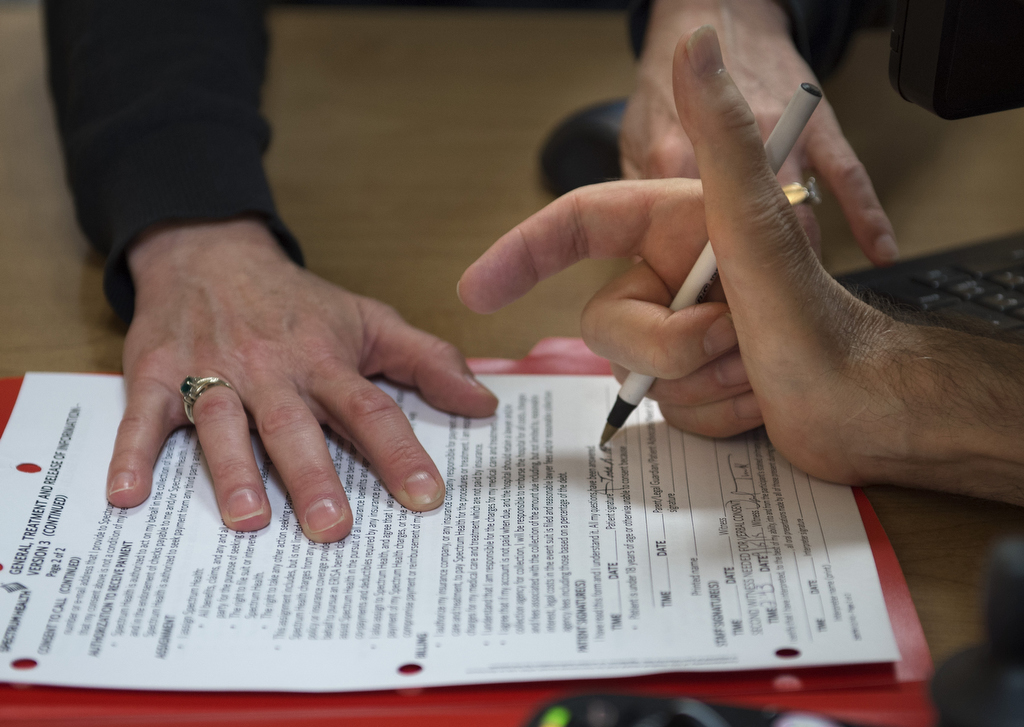
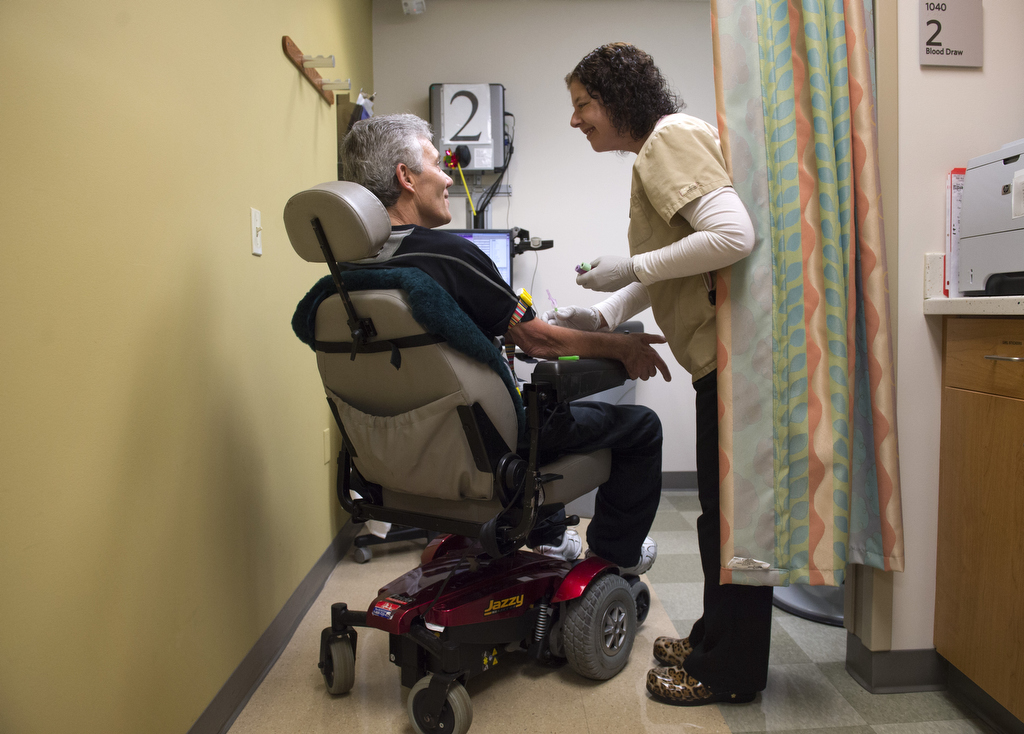
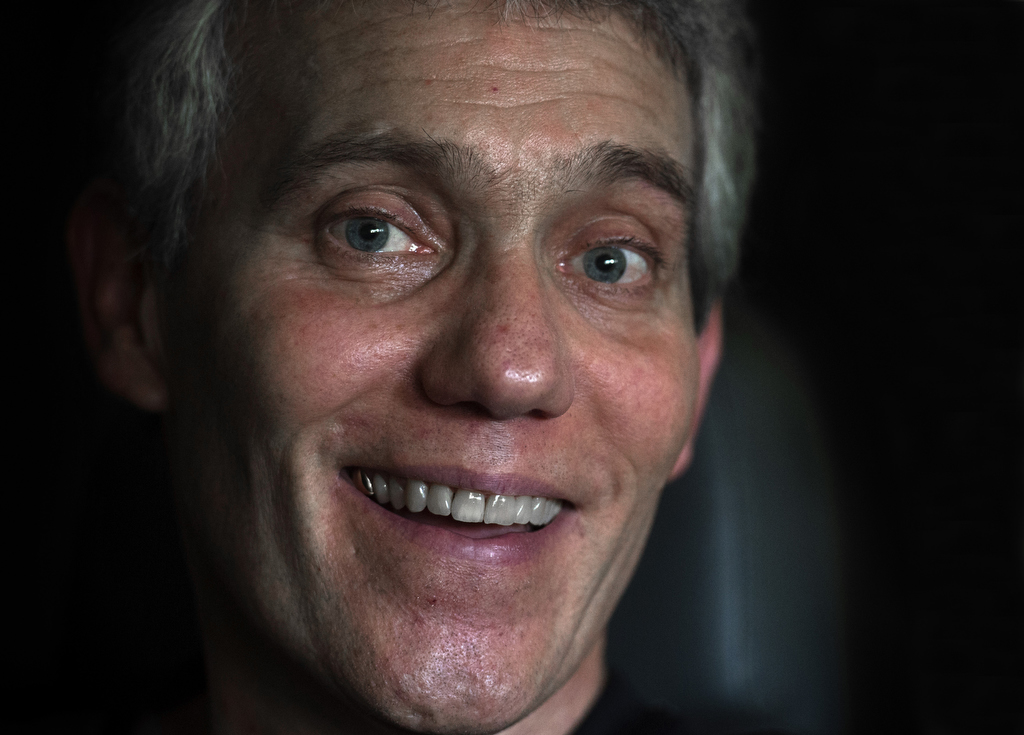
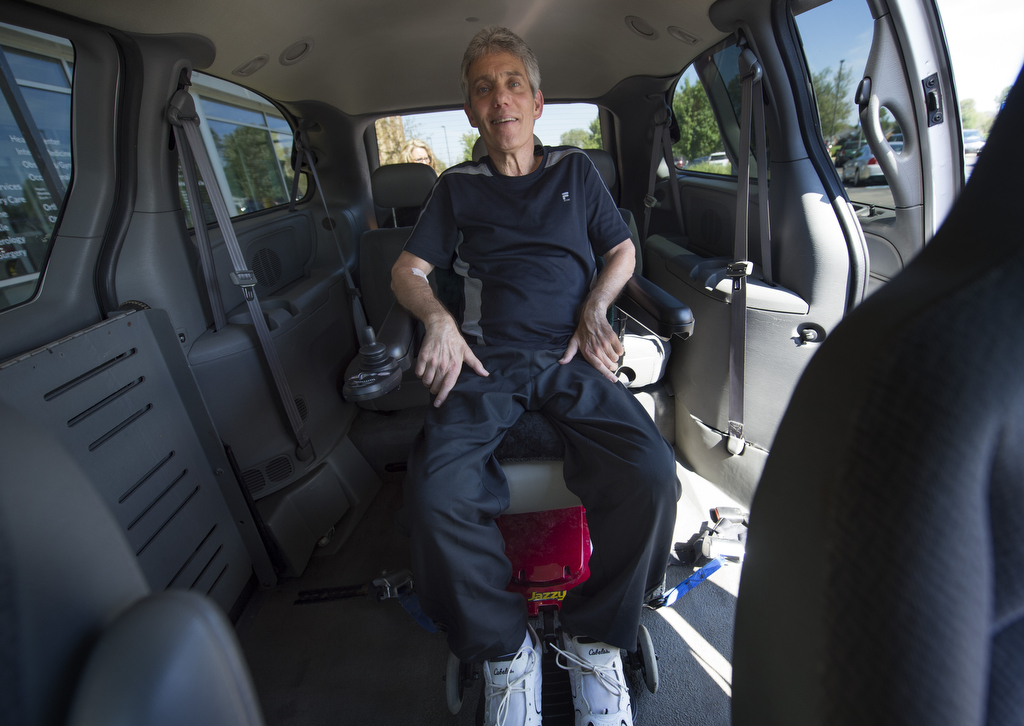
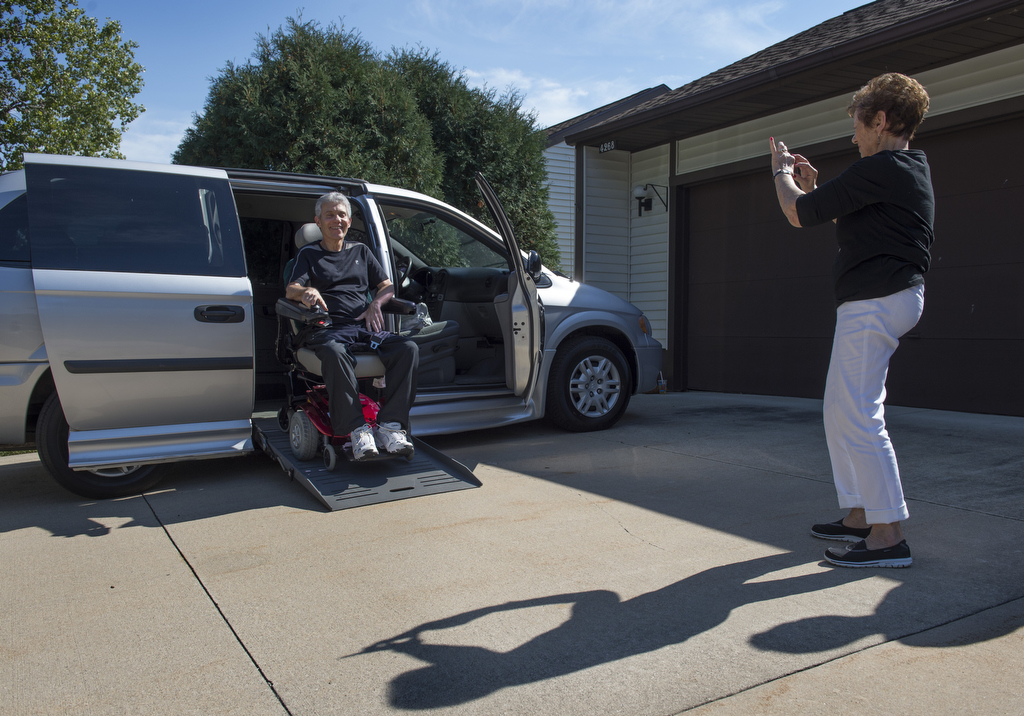
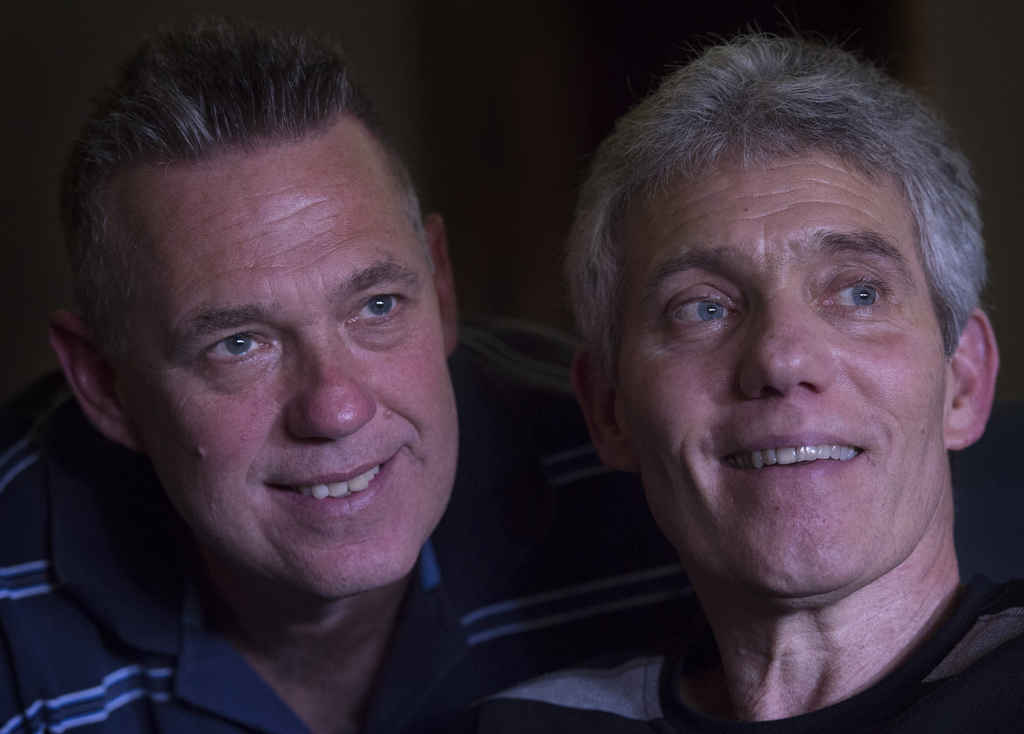
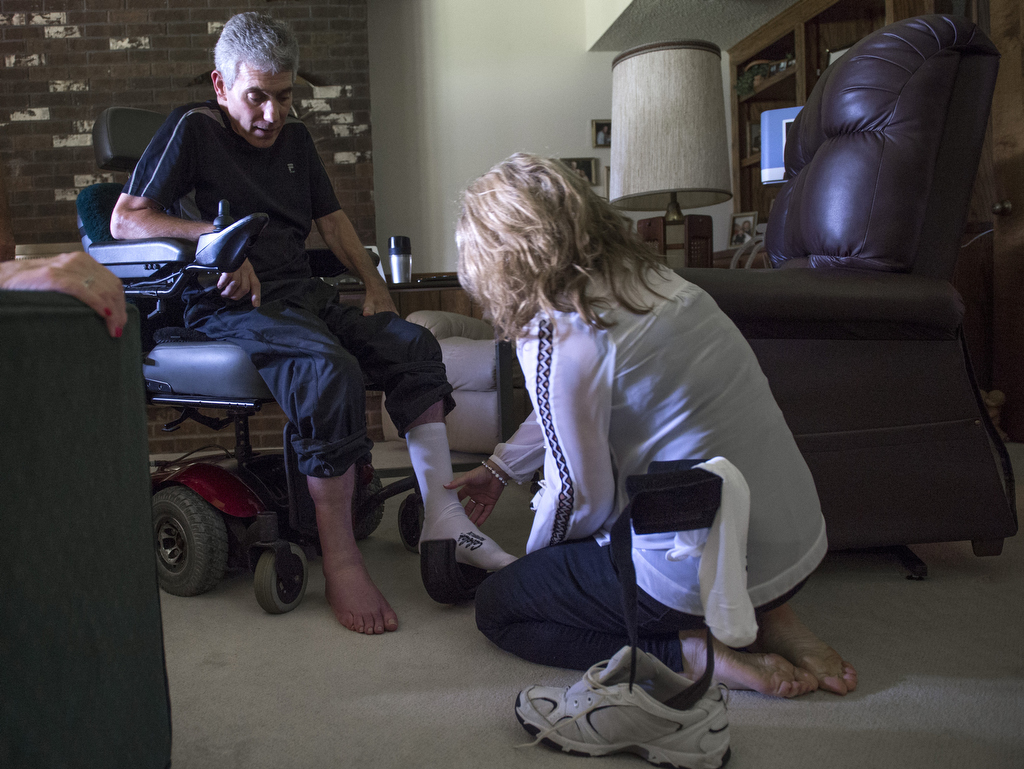
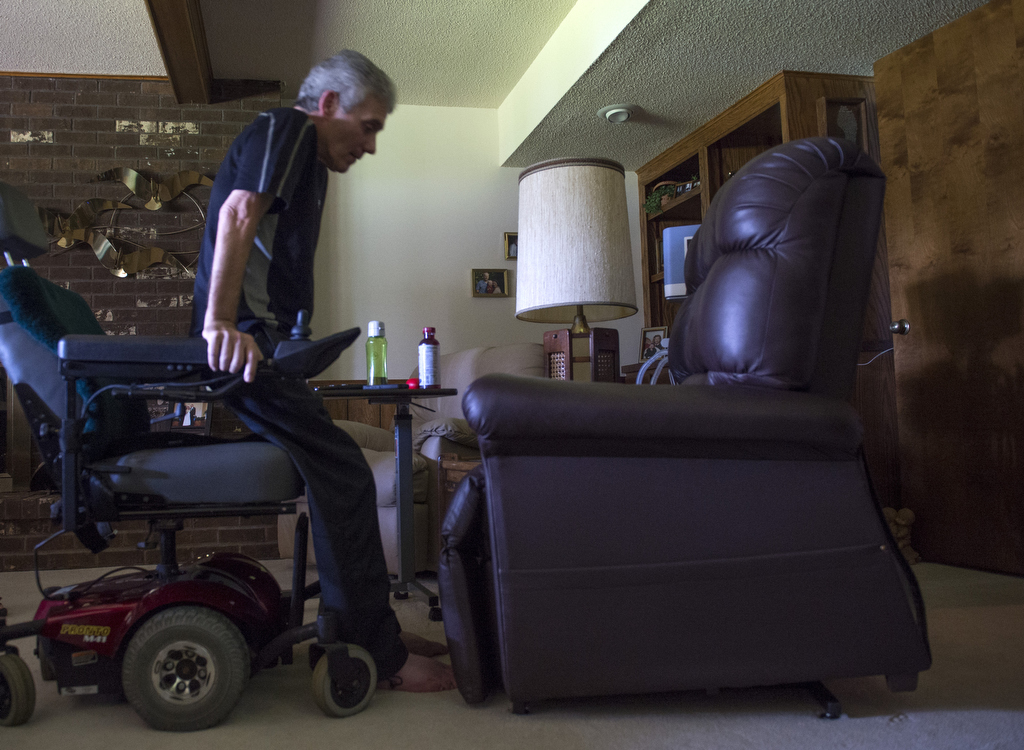
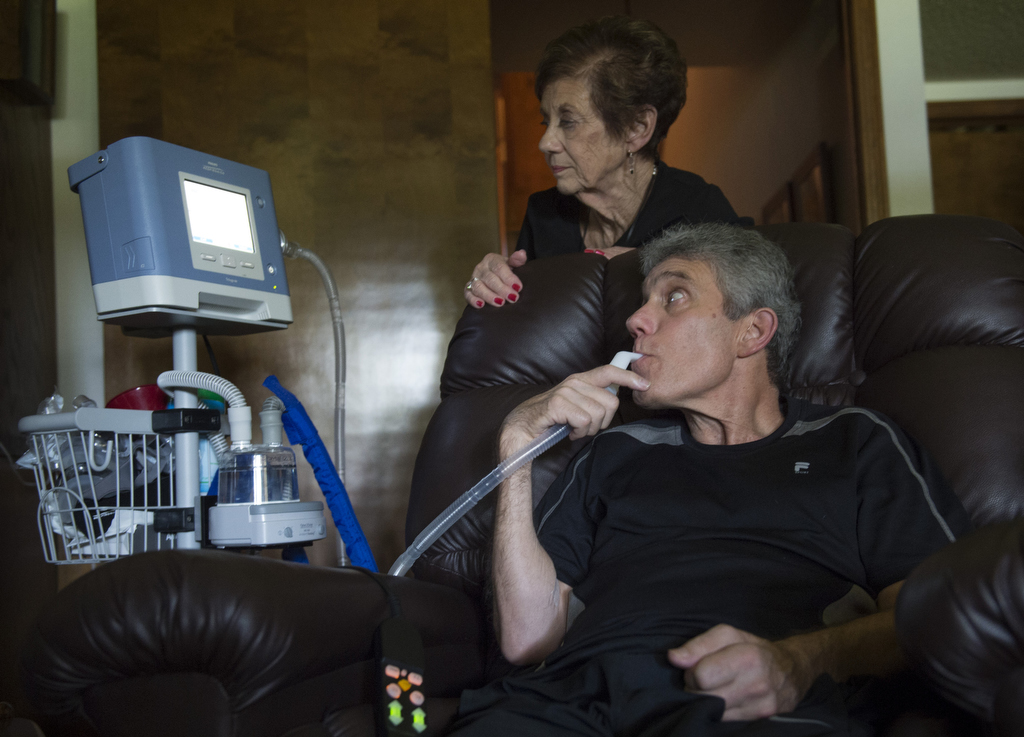
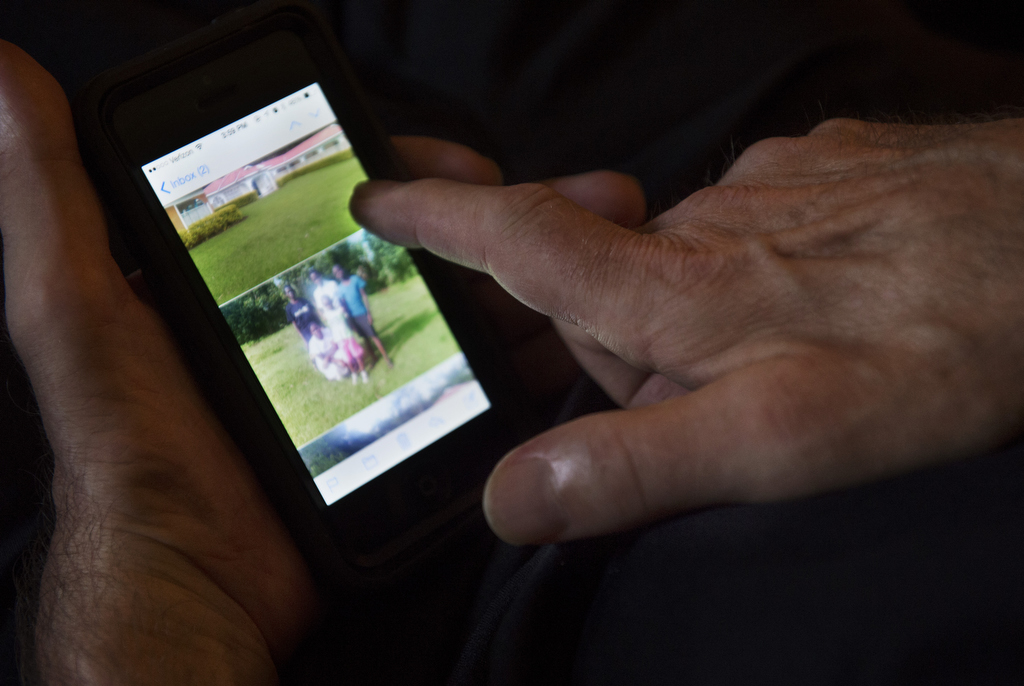
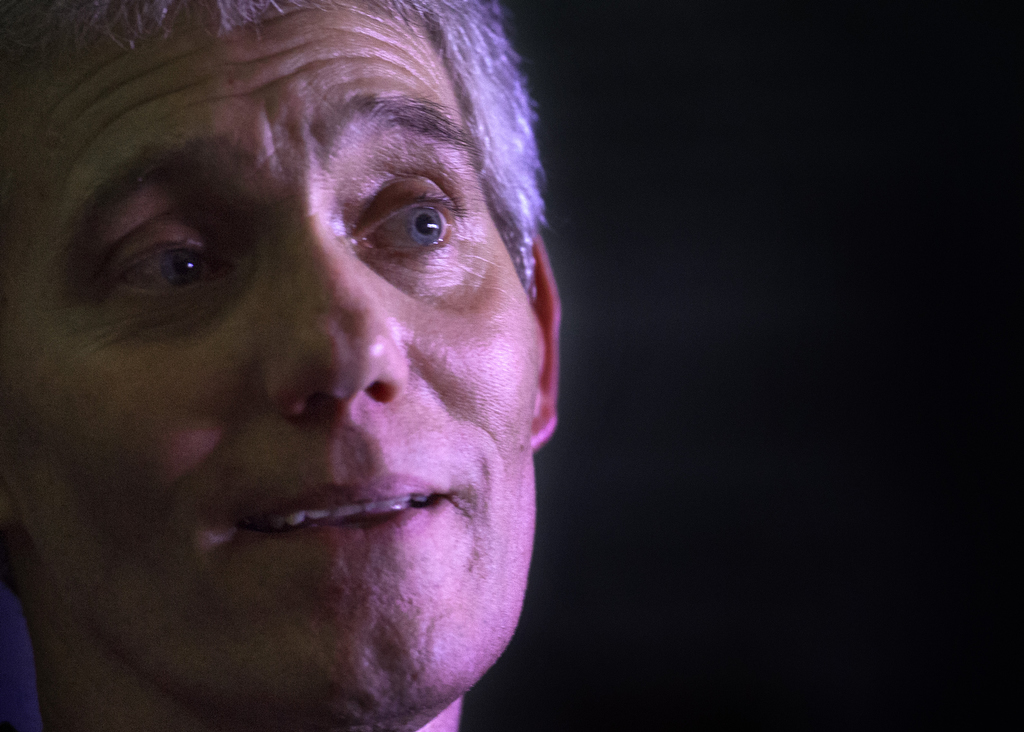
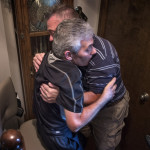
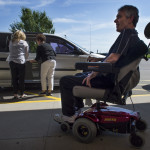
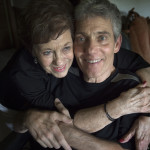
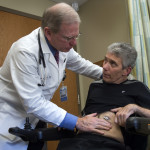

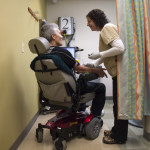










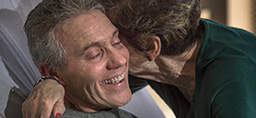 /a>
/a>
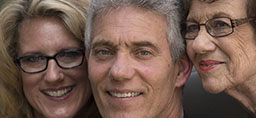 /a>
/a>
 /a>
/a>
What a wonderful man and family! I have a 50 yr old daughter in a power chair with cerebral palsy who lives with me. We also have a retrifitted 2007 Dodge Caravan–for 6 yrs. now. I thank God for it many times when we get in it.
Blessings to all.
Hi Todd I am glad to hear that you are being strong l also have ALS and to hear your story is a blessing to me. I think I am in the right frame of mind also and I take one day at a time. I was diagnosed 2012 I am still able to stay alone but my sister comes over to help me out. All wanted to say is that with any kind of disease like this is to count our blessing ,keep our heads up and smile. One of my sayings is YES I CAN. …
Mary Jane & Sheila – Thank you for your beautiful comments. I know Todd appreciates them. 🙂
Todd you are amazing! An inspiration to many to remain positive no matter what life brings your way. I admire your faith in the lord and I pray he is with you bringing you comfort, peace and strength. You have been and will be in my thoughts and prayers, may god bless you and keep you always. big hugs to you!:)
Daley, Todd appreciates your kindness and support. Continue to follow Health Beat for periodic updates on Todd’s journey through ALS.
I went to Grandville with Todd. I’m thankful that through social media we were able to reconnect. Whatever he might currently lack physically these days, he is still a very powerful man. His faith and his knowledge of its power, is a true testament to mans life purpose, which is to seek to know God. His attitude teaches by reminding us what makes us most powerful are our spiritual gifts. Todd is able to move people’s perceptions about what’s important in life. Getting people to stop, slow down and re-evaluate the small miracles of our next breath, the ability to stand or move about freely is a powerful gift.
Todd teaches us that the power to continue on and finish the race comes not from the physical body, but from within.
“He giveth power to the faint; and to them that have no might he increaseth strength.
But they that wait upon the Lord shall renew their strength; they shall mount up with wings, as eagles; they shall run, and not weary, they shall walk and not faint.”
Isaiah 4:30ish
Todd Alward, certainly, today, tomorrow, one of the strongest, most powerful men you will ever know.
Steve & I just read this touching Story . It really
Shows what Faith in God he has . It
Touched our Hearts immensely . Will Pray
For his Keep .
Sue & Steve Willard .